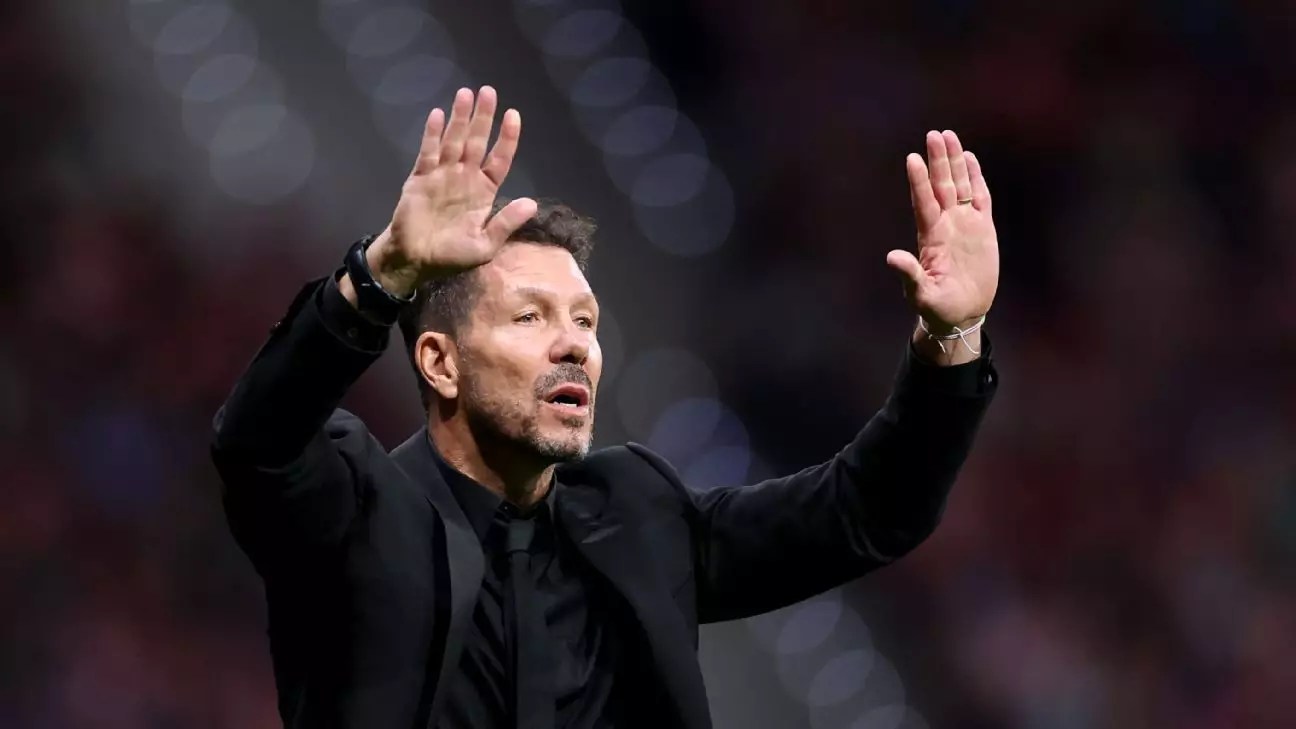The recent Madrid derby between Atlético Madrid and Real Madrid, a fixture simmering with tension and rivalry, unleashed a chaotic situation that raised serious concerns about fan conduct and the responsibilities of players. The repercussions of the game, which was marred by incidents of violence and disruption, extend beyond the field and warrant a deeper examination of the elements that contributed to this unsettling atmosphere.
During a critical moment in the match, with Atlético trailing 0-1 in the second half, the game was temporarily suspended due to fans hurling objects, including lighters and plastic bottles, onto the field. This incident not only disrupted the flow of play but also posed significant safety risks to players and officials alike. Such occurrences have become alarmingly frequent in stadiums across Europe, calling into question the behavior of supporters who lose sight of the sporting spirit and the values embodied in football. The fact that clashes in rivalries can escalate to violence necessitates a proactive grip on crowd control and fan engagement from both clubs and authorities.
This particular encounter saw Real Madrid’s Éder Militão score the opening goal, igniting a negative reaction from Atlético supporters. Moments later, Atlético’s Ángel Correa managed to equalize, only for the game to be overshadowed by the unruly behavior that followed. Following the referee’s initial warning, the situation deteriorated further, ultimately leading to a postponement of the match. It’s crucial to recognize that while the passion of fans is integral to sports, when it manifests as aggression or hostility, it contradicts the very essence of team support.
Assessing Player Conduct: A Call for Restraint
In the aftermath of the chaotic suspension, Atlético Madrid’s coach Diego Simeone directed some of his criticism toward the players, especially regarding their interactions with the fans. He suggested that players must be cautious with their celebrations, especially when tensions run high in a packed stadium. It’s a poignant reminder that athletes, as public figures, wield a unique influence over fans, capable of inciting passion or, conversely, provoking frustration.
Simeone’s statement resonates profoundly—when players display emotions that may be construed as provocations, they are indirectly inviting reactions from the crowd. Equally important is the role of referees and league officials to implement strict guidelines surrounding celebratory conduct to mitigate future disruptions. It’s essential for athletes to embody a sense of accountability, recognizing that their actions, however innocuous they may seem, can spark fervent responses that escalate into crowd unrest.
In addressing the tension, Atlético Madrid’s management pledged a thorough investigation into the incidents, seeking to identify those responsible for the violent outbursts. The club’s commitment to ensuring safety within its stadium should take precedence over fanfare, as it seeks to preserve the integrity of its fanbase, focusing on the many supporters who upheld the spirit of the game positively. The club’s decision to collaborate with police investigations is commendable, signaling a zero-tolerance approach to violence.
However, this situation is symptomatic of broader trends within football culture. As social media amplifies rivalries, clubs must confront the onslaught of toxic elements that can encourage unsportsmanlike behavior among fans. The recent initiative by LaLiga to address and penalize social media campaigns promoting racist behaviours serves as a vital step toward eliminating discrimination in the sport. Creating a safe and welcoming environment extends beyond security measures; it requires a collaborative effort to foster respect and admiration for the game itself.
Ultimately, the Madrid derby serves as both a cautionary tale and a clarion call for change within the world of football. There is an undeniable passion that drives fans to support their teams fiercely, but that fervor must not spill into aggression or violence. Establishing a culture of responsibility—among players, officials, and fans alike—is essential in cultivating an atmosphere where football can thrive without fear of disruption.
As the authorities, clubs, and players continue to grapple with these pressing concerns, educating supporters on the importance of respectful conduct can promote a healthier dynamic in stadium environments. Only through mutual respect and understanding can football reclaim its rightful place as a source of joy and unity rather than conflict and chaos. The Madrid derby should be memorable not for its disturbances, but for its celebration of a city’s rich footballing rivalry.


Leave a Reply